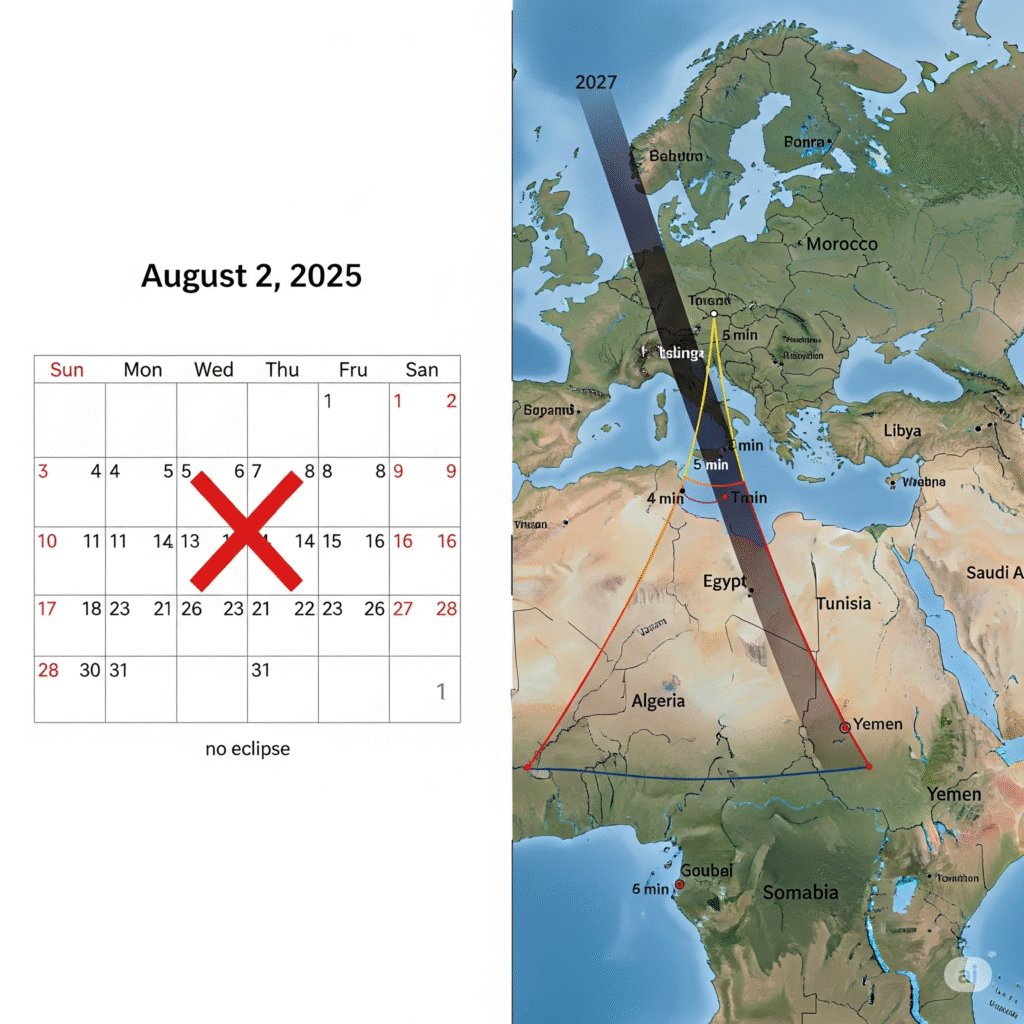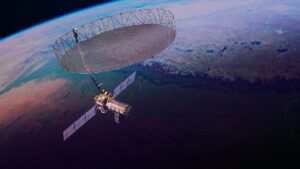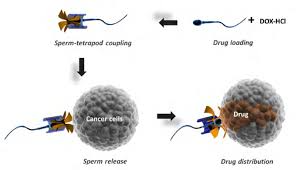Despite viral claims on social media suggesting that the world will experience six minutes of darkness on August 2, 2025, astronomers and NASA confirm no solar eclipse occurs on that date. That event is instead scheduled for August 2, 2027. (Chicago Star Media / Desert Sun; Times of India / NASA clarification)
What’s Real and What’s Not
NASA and oversight bodies like the U.S. Naval Observatory do not list any solar or lunar eclipse on August 2, 2025. The next eclipse to occur-on September 21, 2025-will be a partial eclipse visible only in parts of the Southern Hemisphere. (Chicago Star Media; IndiaTimes clarification)
Why the Confusion? Eyewash for an Eclipse Coming in 2027
The misinformation appears to arise from people mixing up the date with the August 2, 2027 total solar eclipse, which will be the longest visible from land in over a century, lasting around 6 minutes. That event is visible in parts of Europe, North Africa, and the Middle East-not in 2025. (Economic Times / Space.com; Wikipedia eclipse overview)
The Real 2025 Celestial Events to Watch
The next solar eclipse in 2025 is set for September 21, but it will be visible only in southern parts of Australia, New Zealand, and Antarctica, and will not trigger global blackout. (Wikipedia eclipse path)
Moreover, the Perseid meteor shower peaks in mid-August, though visibility may be compromised by a nearly full moon. Astronomy enthusiasts can still view other summer sky objects. (NASA Skywatching Guide)
Why Precision in Sky Maps Matters
Accurate eclipse calendars are essential for public safety and scientific planning. False claims can lead to unnecessary panic or reliance on incorrect spiritual or cultural observances such as Sutak periods. (Context: The Verge refutations)
Astronomers stress that eclipse events are precisely predictable years in advance using celestial mechanics. August 2, 2025, does not feature any eclipse in official records. (Times of India fact-check)
Sources: Chicago Star Media / Desert Sun (NASA debunk), Times of India / NASA clarification, Economic Times / Space.com (2027 eclipse), Wikipedia (September 2025 eclipse), NASA Skywatching Guide, Times of India fact‑check




